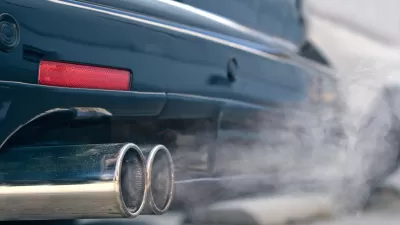It didn't last long: one month to be precise. The American public ate through the $3 billion stimulus program for purchasing new, efficient cars and trucks as fast as they could qualify their older gas guzzlers for the $3,500 and $4,500 credits.
Alas, all good things must come to an end - sometimes prematurely. Precise numbers are not available for how many of the cars turned in through the Car Allowance Rebate System (cars.gov) actually qualified for the credits as it is estimated that as many as 80% of the claim forms had errors according to a National Automobile Dealers Association report.
While it is estimated that when the program ends Monday, only $2 billion of the $3 billion of credits may have been reimbursed to the new car dealers, the program was on track to exhaust the additional $2 billion authorized by Congress only 2 weeks ago (August 6).
What may have caused the program to end early was the reimbursements due the dealers. It turns out that the Department of Transportation hadn't expected the tremendous interest in the program and could never process the claims as fast as the dealers could submit them.
The program had its share of critics - from those who claimed that it was funding too many light truck purchases and from environmentalists who claimed the program was not an efficient way to reduce greenhouse gas emissions.
Thanks to Mark Boshnack
FULL STORY: Cash for Clunkers to end on Monday

Alabama: Trump Terminates Settlements for Black Communities Harmed By Raw Sewage
Trump deemed the landmark civil rights agreement “illegal DEI and environmental justice policy.”

Planetizen Federal Action Tracker
A weekly monitor of how Trump’s orders and actions are impacting planners and planning in America.

How Atlanta Built 7,000 Housing Units in 3 Years
The city’s comprehensive, neighborhood-focused housing strategy focuses on identifying properties and land that can be repurposed for housing and encouraging development in underserved neighborhoods.

In Both Crashes and Crime, Public Transportation is Far Safer than Driving
Contrary to popular assumptions, public transportation has far lower crash and crime rates than automobile travel. For safer communities, improve and encourage transit travel.

Report: Zoning Reforms Should Complement Nashville’s Ambitious Transit Plan
Without reform, restrictive zoning codes will limit the impact of the city’s planned transit expansion and could exclude some of the residents who depend on transit the most.

Judge Orders Release of Frozen IRA, IIJA Funding
The decision is a victory for environmental groups who charged that freezing funds for critical infrastructure and disaster response programs caused “real and irreparable harm” to communities.
Urban Design for Planners 1: Software Tools
This six-course series explores essential urban design concepts using open source software and equips planners with the tools they need to participate fully in the urban design process.
Planning for Universal Design
Learn the tools for implementing Universal Design in planning regulations.
Caltrans
Smith Gee Studio
Institute for Housing and Urban Development Studies (IHS)
City of Grandview
Harvard GSD Executive Education
Toledo-Lucas County Plan Commissions
Salt Lake City
NYU Wagner Graduate School of Public Service



























